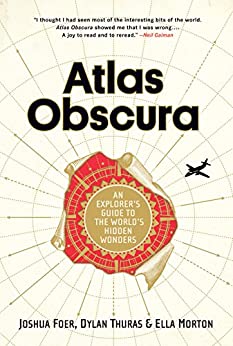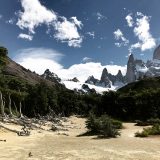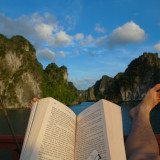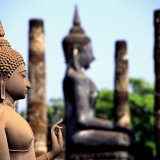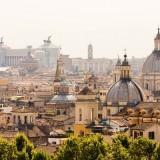Why a Long-Distance Trek is a Great Travel Experience
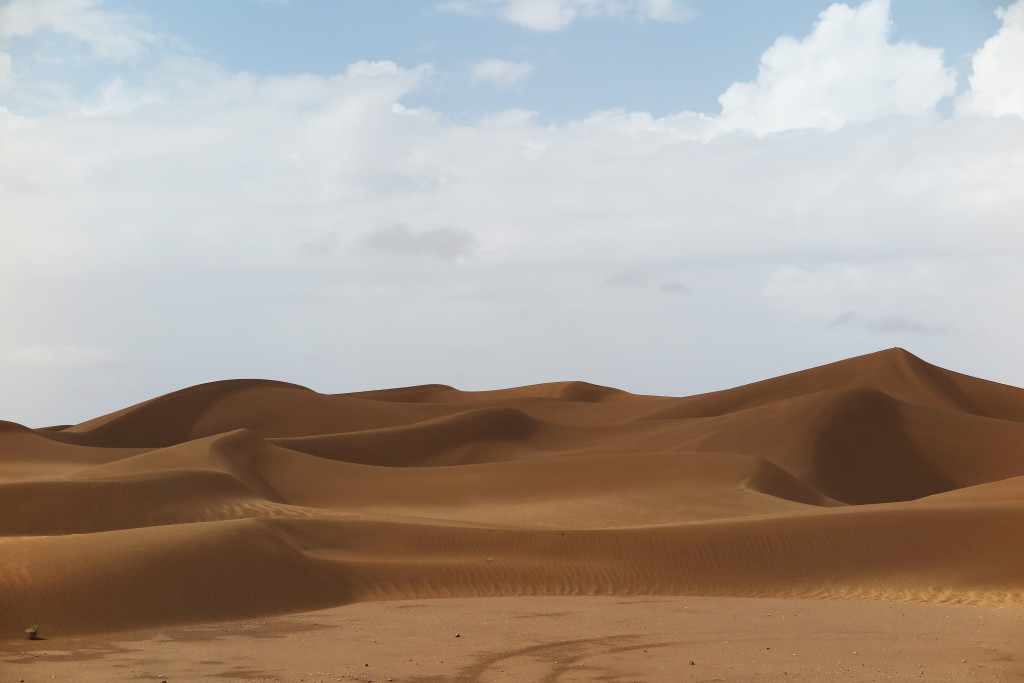
In Arabic, “erg” means “a sea of sand.” The Erg Chigaga spans 40km by 60km with dunes reaching 300 metres in height. Credit: Victoria Boyd.
Last September, amidst a 10-day trip to Morocco, my boyfriend and I did a three day trek in the Sahara desert. Alone with our guide Ibrahim, we walked from the centre of the Erg Chigaga to a small desert town called M’Hamid.
But before I make myself sound like a trail-blazing, exercise-loving, hiking enthusiast, I must set you straight. I’m quite the opposite. I’m terrible at any form of exercise and always have been. To be honest, I’d much rather spend my time reading a book or relaxing with friends.
I would have been perfectly content with driving into the Sahara to spend the day walking between dunes and taking pictures. Unfortunately, my version of a “desert excursion” didn’t satisfy my hiking-lover partner.
So we compromised, sort of. He proposed a three day trip. Day one we would be driven deep into the Erg Chigaga. Day two we would wake early and hike to a camp in the Erg Bougar. Day three we would again set out early and walk until we reached M’Hamid.
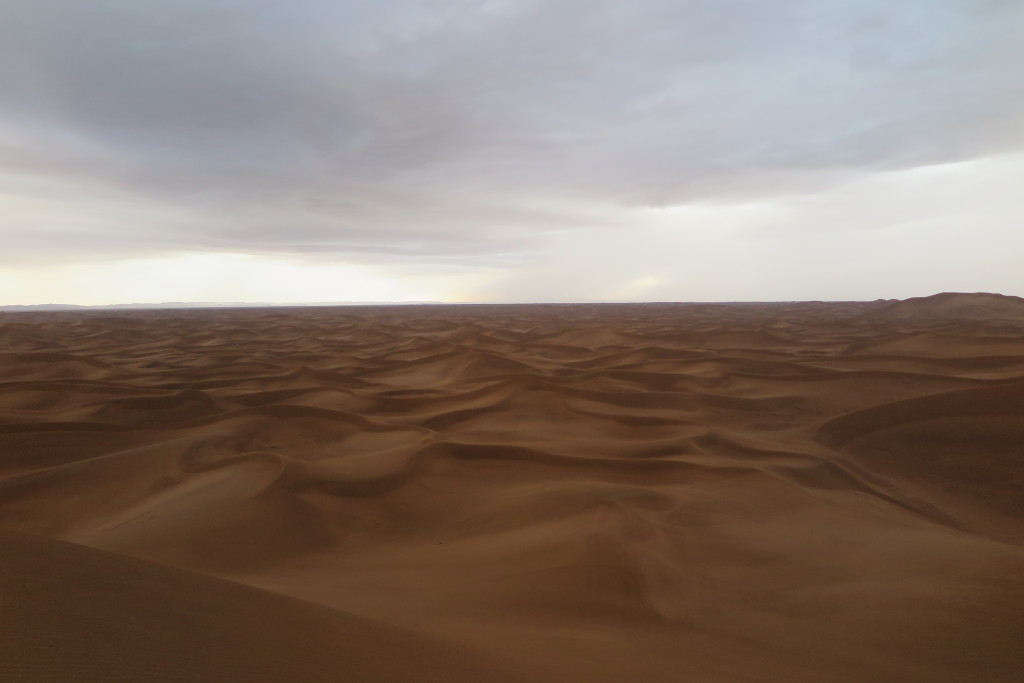
View of the Erg Chigaga from the “Grand Dune”. Credit: Cristiano Berta.
I was hesitant, but I agreed. Plus, the owner of the travel agency promised that if we really needed, he would drive into the desert to pick us up.
After arriving in the Erg Chigaga in the late afternoon, it soon became apparent that our plans were about to change.
We had about an hour to explore the dunes around our campsite before the storm hit. Rain beat down all night, saturating the dry sand and pooling in the valleys of the dunes. The Sahara hadn’t seen that much rain in almost 40 years.
In the morning we woke up along the edge of a massive “lake” spanning over 30 kilometres. We could no longer walk straight from our campsite to M’Hamid, but would have to make our way around the edge of this vast body of water. A 20-kilometre journey had just turned into 60.
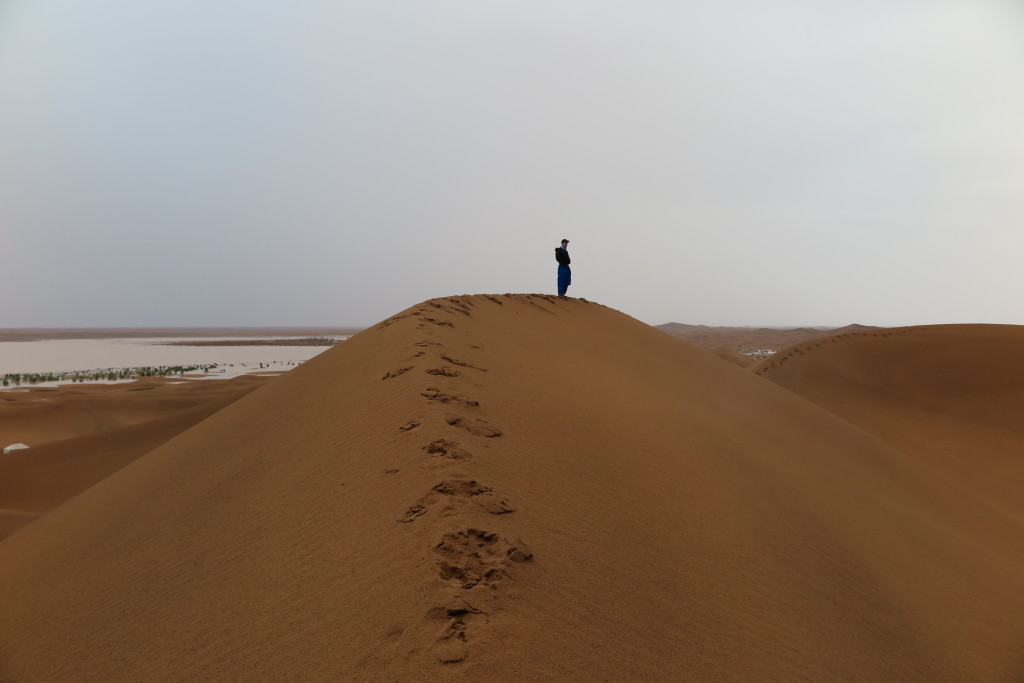
The “lake” that formed in the valley of the Erg Chigaga. Credit: Victoria Boyd.
Reason #1: Realize life can’t be planned
I’m a planner. I like things organized and scheduled. But on a hike you learn to accept that life can’t be planned. Unexpected things happen. Things that you never thought possible can happen. Like rain in the Sahara desert. Our journey taught me not to avoid these moments but to embrace them.
We didn’t get the “sunset over the Grand Dune” our guidebook promised us. Instead, we watched for hours as a spectacular lightning storm lit up the night.
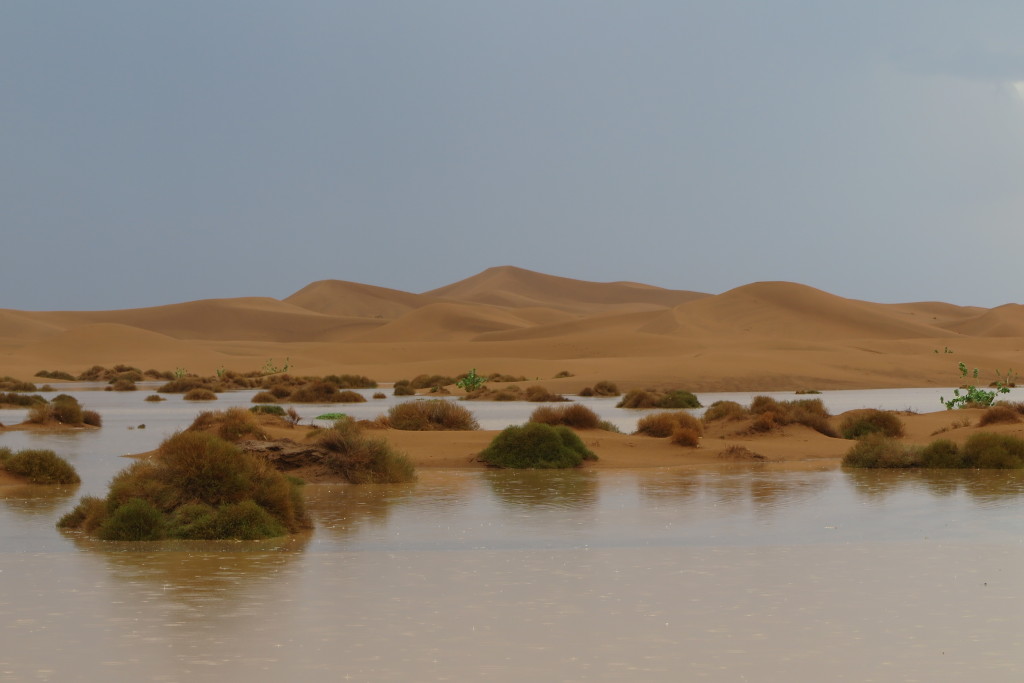
The greenery that sprouted overnight thanks to the rain was a welcome sight to the nomads who would use it to feed their goats. Credit: Victoria Boyd.
This unexpected turn of events enabled us to witness a side of the Sahara even our guide had yet to see.
The next morning, as we hiked around that immense lake, hours passed like seconds. Walking barefoot over the dunes and under the rain gave us a feeling I can only describe as euphoria. We couldn’t believe six hours had passed by the time we stopped for lunch.
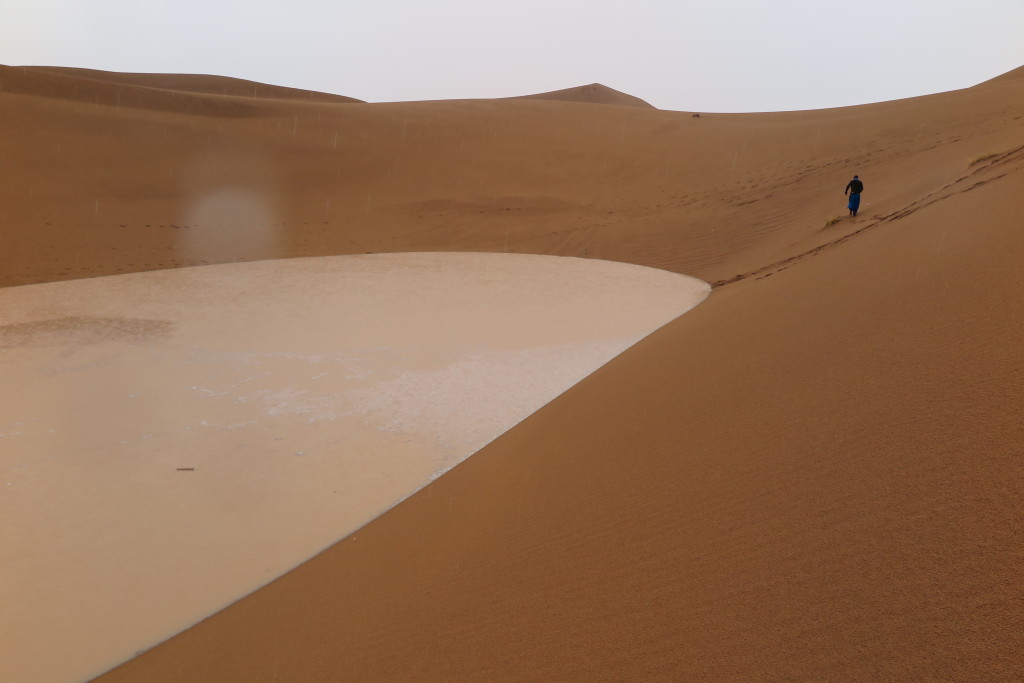
Small lake in the valley of the dunes. Credit: Victoria Boyd.
But later in the afternoon we began to grow tired. We kept asking Ibrahim, “how many more hours… how many more kilometres until we arrive?”
Tentatively, he would give an answer he thought we wanted to hear, “encore une heure… encore cinq kilometres” he said in French. But one hour and five kilometres would come and go over and over. Our understanding of time as hours and distance as kilometres meant nothing to him as a nomad from the desert.
Reason #2: Alter the way you think
Our hike reminded us that not everyone perceives the world in the same way we do. Western understandings of distance and time (or anything else for that matter) are not universal. After a lifetime of traversing the desert, Ibrahim didn’t perceive distance or time in abstract numerical measurements.
We had to broaden our way of thinking to align with his. On the second day our questions shifted. Still desperate to know how much longer we had to walk, we instead asked, “is the camp past that dune on the horizon?”
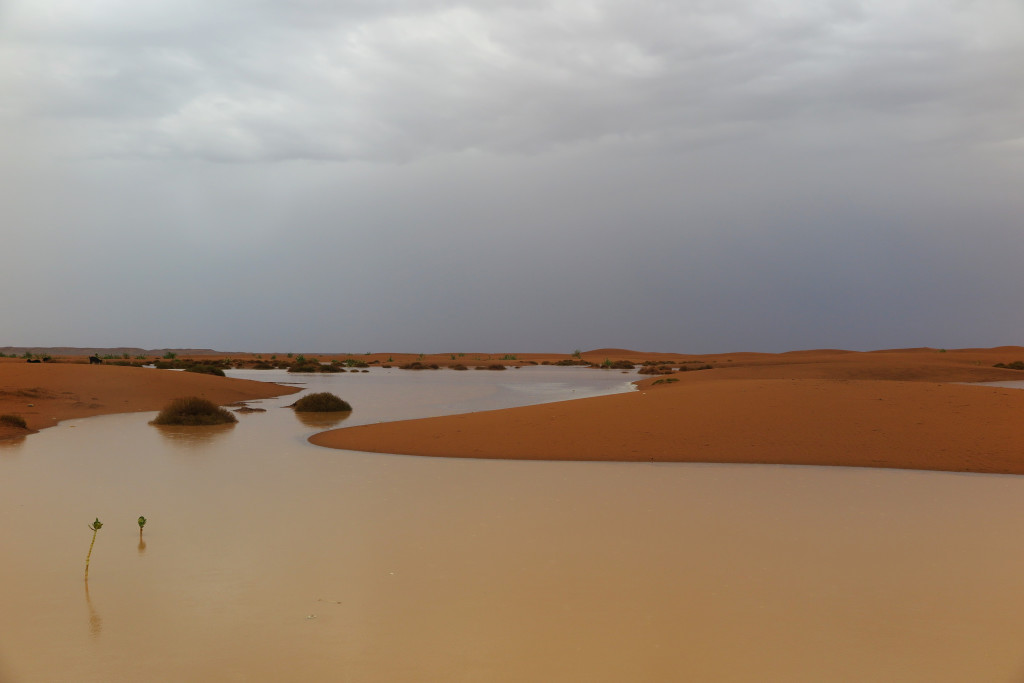
Sahara after the storm. Credit: Cristiano Berta.
When we began to change the way we thought, our journey changed too. We no longer attempted to measure distance or time with abstract figures. Instead, we walked until we reached a point along the horizon. When we made it there, we celebrated our small victory by choosing the next landmark.
It was a new way of understanding our surroundings. A lonely acacia tree was no longer just a tree, but a goal to reach. The day passed this way, until the sun began sinking into the horizon and our campsite finally appeared.
On the third day we woke up sore and tired. In retrospect I realize I was succumbing to negativity, but at the time I felt there was no way I could manage another 12 hours of walking. My mind was drained and every inch of me ached.
We decided to call the owner of the travel agency and ask him to drive us to M’Hamid. It would just take an hour to cross that stretch of the desert in his Jeep.
But he refused, “The rain has washed away the roads… I can’t get through the desert with the jeep when it’s so wet” he said on the phone. We knew this wasn’t entirely true, but we had no choice. We had to walk.
I spent the morning slumped on our camel. I let myself become engulfed in negative thoughts as I rocked from side to side with each step the camel took.
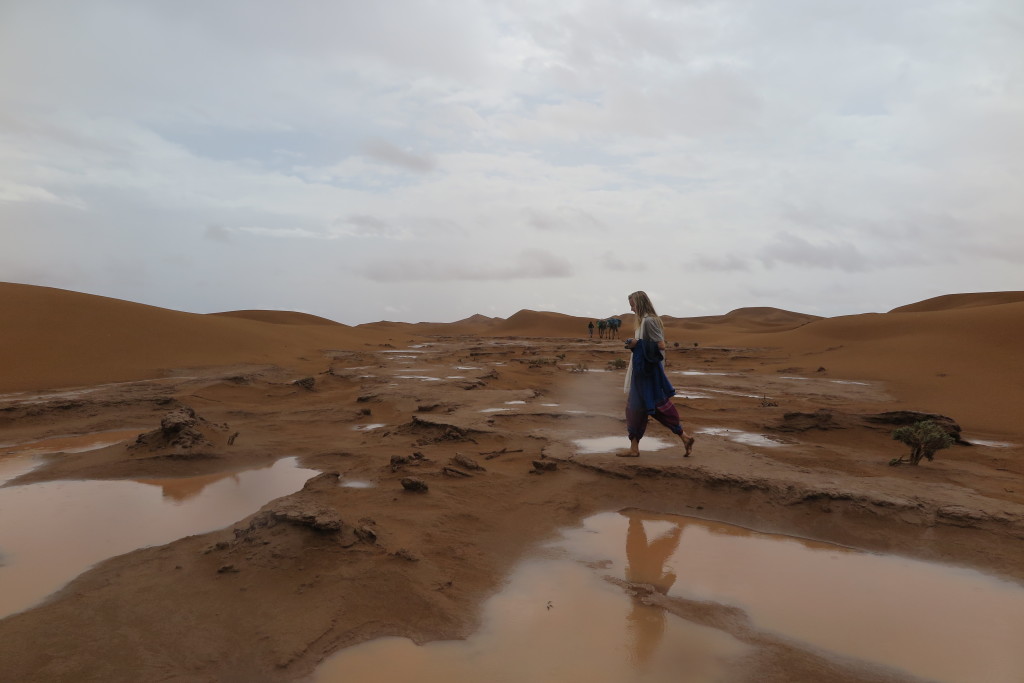
The dry sand turned to mud under the rain. Credit: Cristiano Berta.
The clouds, remnants of yesterdays storm, vanished around 10 in the morning. The sun beat down with such strength that the pools of water in the valleys of the dunes evaporated before our eyes. After two days in the Sahara, I finally understood the heat of the desert.
In an effort to lift my spirits, my boyfriend began reminiscing out loud about our adventures the previous year in Toronto. Nights out with friends, sunny days exploring the city, cozy winter evenings sipping wine. I couldn’t resist, I started reminiscing with him, sharing memories and growing lighter.
Suddenly it dawned on me. I was in the Sahara desert. And I had wasted almost all morning sulking. Reminiscing about the past made me realize how much I needed to live in the present.
Reason #3: Learn to live in the present
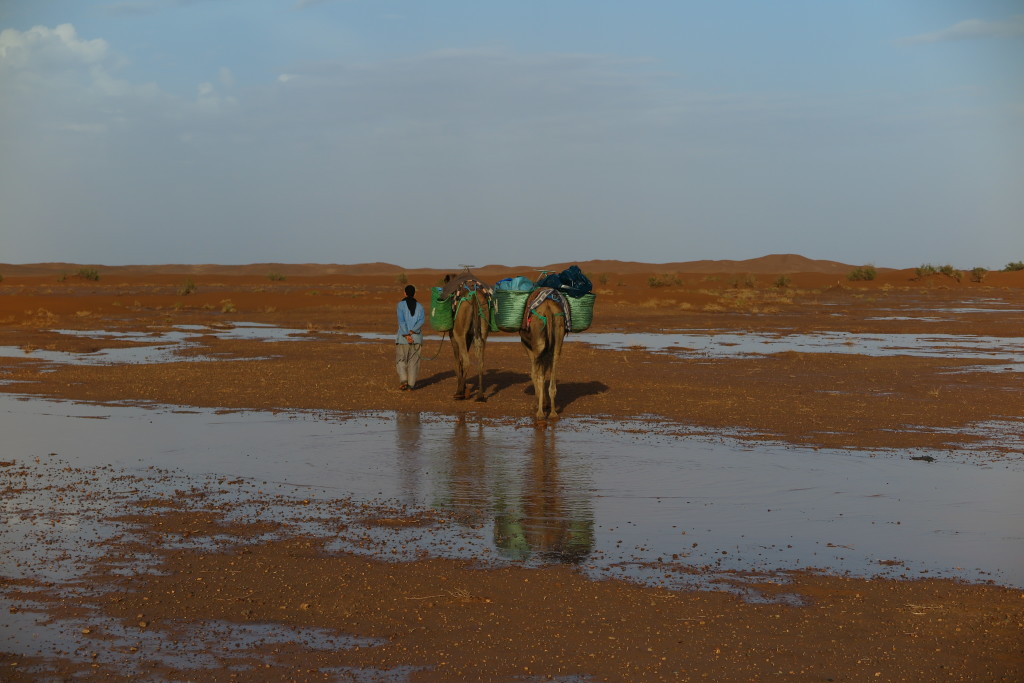
Through the Hamada. Credit: Victoria Boyd.
I began to absorb my surroundings. The desert had transformed while I was immersed in my thoughts. The sand dunes had faded into a rocky hamada. A sea of black rocks stretched toward the horizon.
In that moment I vowed to live in the present, take a moment each day to consciously absorb my surroundings, and be grateful for wherever I am in the world.
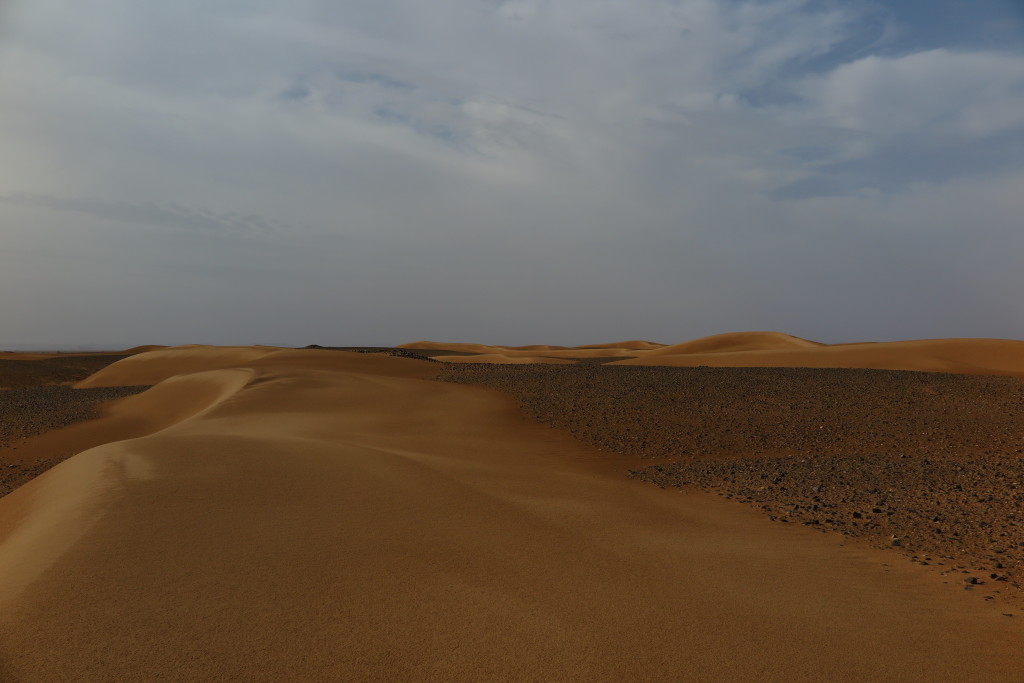
Transition from the desert to the Hamada. Credit: Victoria Boyd
With these newfound feelings of positivity came new strength. We pushed on under the burning heat for another 9 hours. I rotated between walking and riding the camel (each equally exhausting, trust me, a camel is no easy ride).
We chatted about our surroundings. We questioned Ibrahim about his life in the desert. We just kept moving forward, with our eyes set straight ahead, from one landmark to the next, until we reached M’Hamid.
Reason #4: Build new strength
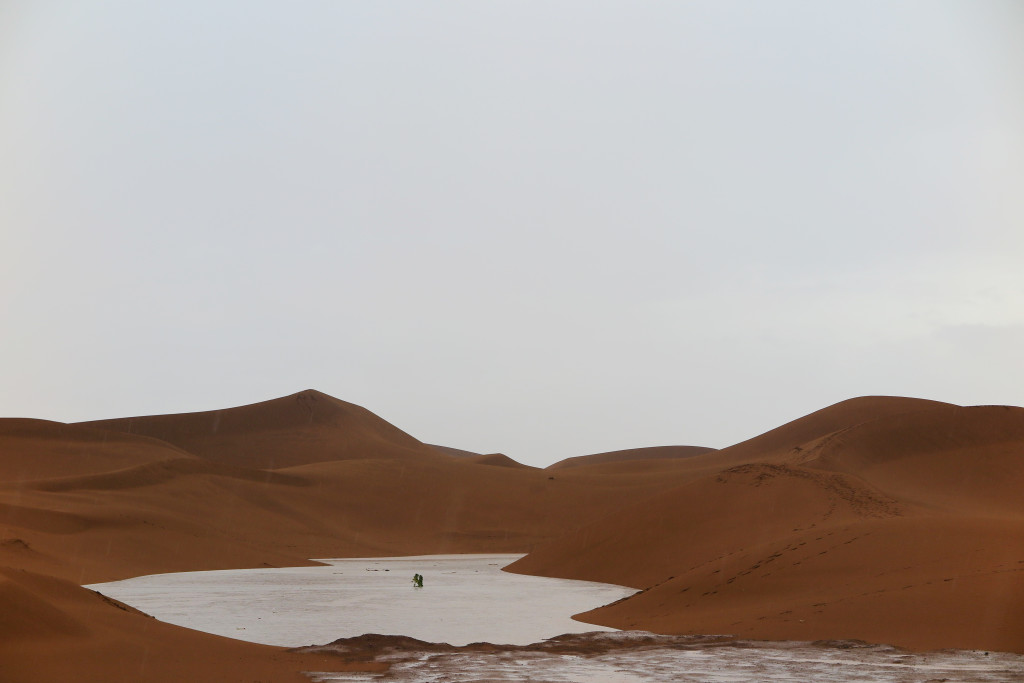
The Sahara under the rain. Credit: Victoria Boyd.
When we arrived it felt surreal. Over the course of the trip M’Hamid had almost become a strange place we dreamed of but were no longer sure was real.
The journey felt like it had been both an instant and a lifetime. Did I really walk 60 kilometres in two days? The feeling of accomplishing something you never thought you could do gives a feeling of strength you’ll never forget.
The owner of the travel agency was waiting for us in M’Hamid. As an apology for not picking us up, he had booked us into a five star hotel for a fraction of the usual price.
We were so exhausted we barely noticed the beautiful hotel. We had one thing on our minds: a shower. Never have I been more appreciative of the simple act of standing under a stream of hot water.
Reason #5: Remember to value the simple things
A long distance trek requires letting go of life’s luxuries. While it may be difficult at first, arriving back to the things you once took for granted reminds you to appreciate the little things. The smallest everyday activities can bring such pleasure when you really think about them.
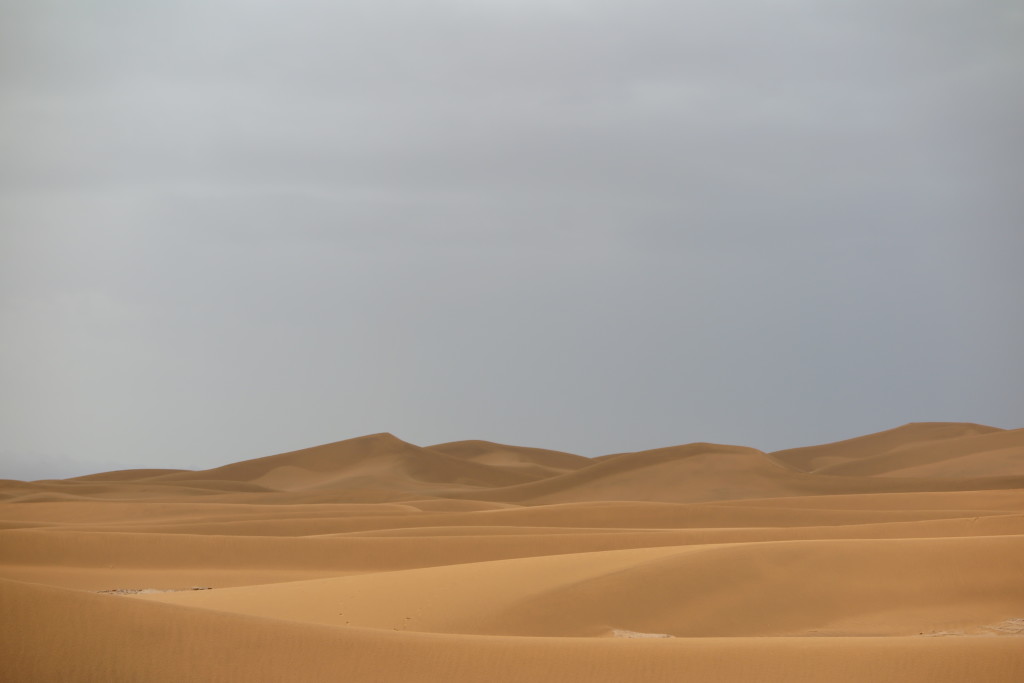
Credit: Victoria Boyd.
If you can, go on a hike. Put yourself in nature and just walk. One day, two days, a week; it doesn’t matter, just walk. Your journey may be different than mine, but you will learn so much.
Latest posts by Victoria Boyd (see all)
- Norway Untouched: A Journey into the Fjords - January 23, 2018
- Three Days, Three Cities: Belgium’s Brussels, Ghent and Bruges - December 12, 2017
- 5 Tips for Taking Better Travel Photos - November 14, 2017

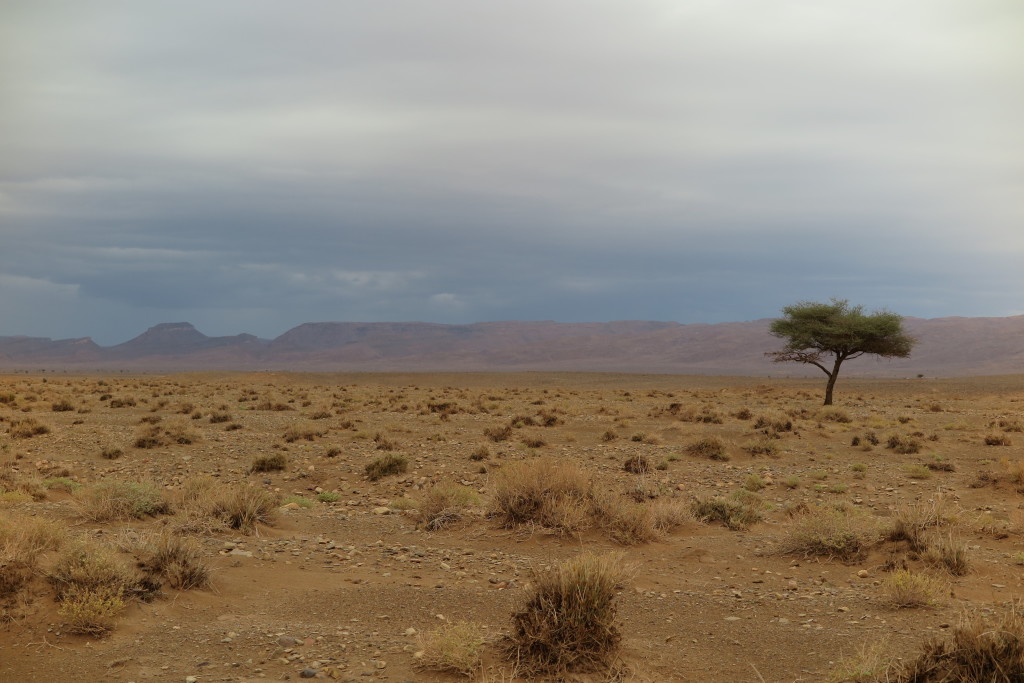


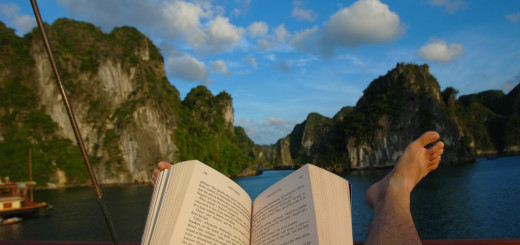
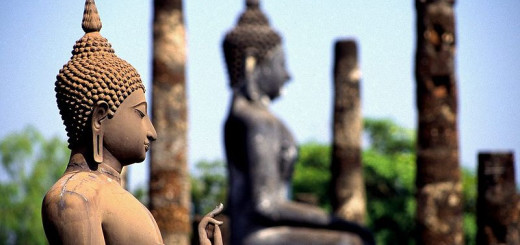

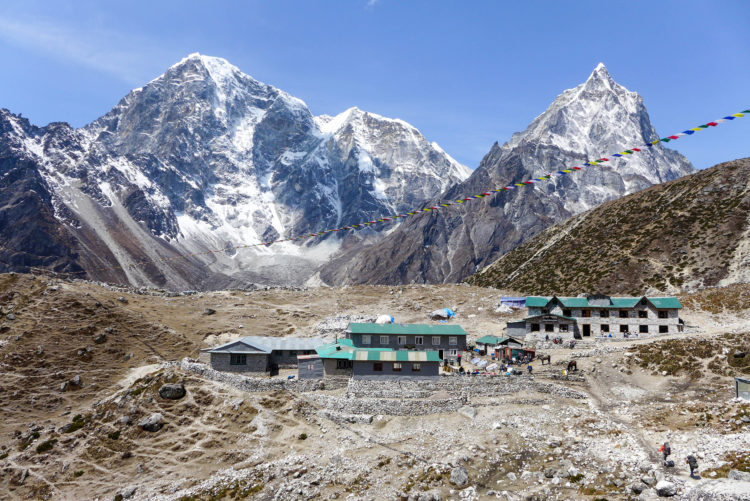 Almost all the tea houses in
Almost all the tea houses in 
